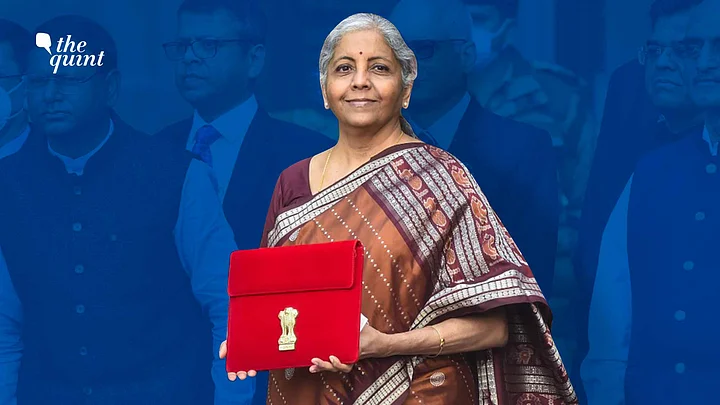Impartial observers of the Modi government, and especially of Finance Minister Nirmala Sitharaman, were not convinced by the pre-budget expectations that Budget 2022 will be an election budget that will fork out the hard-won budget prudence to gain an electoral edge. To some of us, therefore, it comes as no surprise that this is a pure work-in-progress, business-like, no-nonsense budget, which is focused on keeping the economy on the growth track rather than any short-term populist wins.
Budget 2022 has taken a leap of faith and focused on using the scarce resources available to go for growth rather than spending on income support or tax sops to the lower middle class. Hiking capital expenditure by 35.4% to hit Rs 7.5 trillion (up a huge 2.2 times from just two years ago) reaching almost 3% of GDP is a big statement on the government’s view on its role in keeping India on the growth path.
This means that the government would rather create jobs one year down the line than give a one-year tax break or income support.
In our own personal budget terms, this would be akin to tightening the belt with our current spending in order to pay for some training or degree that would improve our potential to earn.
Cryptocurrency is Now Taxable
There are individual, specific proposals in the budget that must be mentioned. There is very good news for the 37 crore accounts in post offices, as the government intends to include all the post offices in the core banking infrastructure in 2022, a process that has been on for some time. Payments and banking in India are world-class – it’s low cost, very fast and has full interoperability between banks. This system will now include over 1.5 lakh branches of post offices. For people with post office deposits, PPF accounts and pension payments coming through this route, this is very good news.
The government’s decision to tax virtual digital assets shows the road ahead for what has been called ‘cryptocurrencies’. A flat tax of 30% on the income earned from trading, transferring, gifting any virtual asset is aimed at putting some restrictions on the free-for-all ride that this unregulated part of the market has seen over the past two years. This also means that a blunt ban might not manifest on these tokens, as was being feared. How this will work is like this: if you can only explain a bank inflow to a virtual digital asset sale or gift or transfer, then that much money is taxed at a flat 30%. You cannot offset this for any ‘loss’ because the government is not treating this as a short- or long-term capital gain, but as income. No deductions are allowed for expenses for trading, other than the price at which you bought. Income will be equal to the price you sold for minus the price you bought it for.
For crypto enthusiasts, the world still needs a cash-out of crypto into fiat currency, and the moment you do that, there will be a tax!
In addition, there is a 1% tax deducted at the source for those transferring this digital token. The impact on the so-called cryptocurrency exchanges is yet to be fully digested. The Central Board of Direct Taxes (CBDT) will need to clarify whether the exchanges will be included in this or not.
The announcement that the Reserve Bank of India (RBI) will soon introduce a digital rupee, or India’s Central Bank Digital Currency, gives more power to the view that no viable government will allow a privately held digital token to be used as fiat currency. I predict that in a few years, a certain part of the monthly salary of government employees (maybe even private sector ones) will be in e-Rupees to push the digitisation of money even further.
But a Section of Population Needs Support
For those income tax payers who forgot to include some income in their returns, the tax department’s response has been one of deep suspicion. This is set to change with such taxpayers now getting a window to declare that income themselves rather than facing detailed scrutiny. However, for serial under-reporters of income, the setting off of losses on undisclosed income has been disallowed.
So, people would deliberately not show income in the returns, but when it was found after scrutiny, they would claim set-offs to bring the tax liability down. Not allowed anymore, and rightly so.
But there is a quintile of the population that needs some hand-holding by the government – the recently emerged non-poor face the risk of slipping back into poverty due to COVID-19-induced loss of livelihood. I was hoping to see some e-shram card-linked programme to extend income support to the informal worker, who has been the worst hit over the past two years.
For the stressed household finances for the lower-income cohort, there is some more time of forbearance. The biggest boost today that can help them is not in the Budget, but opening up of the economy fully for business.
(Monika Halan is an author and Adjunct Professor at NISM. This is an opinion article and the views expressed are the author's own. The Quint neither endorses nor is responsible for them.)
